The ANU Indonesia Project and LPEM FEB Universitas Indonesia hosted the 19th Sadli Lecture on Wednesday, 7 May 2025 in Jakarta. This seminar marked the second Sadli Lecture in the Gender Series, held in honour of Professor Saparinah Sadli. While the Lecture has traditionally focused on Indonesia’s economic challenges, it has now embraced broader interdisciplinary themes, highlighting the intersections of gender in the Indonesian context. The Sadli Lecture is followed by a Symposium on social inequality, communities, and climate change supported by KONEKSI.
This year’s Sadli Lecture entitled Colonial legacies and postcolonial agendas: How does the Indonesian gender order move into a postcolonial future to address climate change? was delivered by Professor Ann R. Tickamyer (Professor Emerita of Rural Sociology and Demography at Penn State University). The Lecture is based on a commissioned paper which will be published in the Bulletin of Indonesian Economic Studies (BIES).
In her lecture Ann Tickamyer explored the lasting effects of colonialism on gender, economic development, and environmental crises, particularly in relation to disaster and climate change. She argued that colonial legacies in Indonesia have left the country dependent on an extractive economy, with industries such as palm oil, oil and gas driving environmental degradation and inequality. Gender roles, rigidified under colonial rule, continue to disadvantage women, making them more vulnerable to the impacts of disasters and climate change. Women often face exclusion from decision-making processes and lack access to resources, further exacerbating the gendered effects of these crises.
Through her case studies from Aceh, Bantul, and Merapi, Tickamyer emphasized the importance of gender integration and social capital in disaster recovery and resilience. She introduced the concept of “riskscapes” to illustrate how disaster and climate change risks vary by gender, highlighting how women’s involvement in recovery efforts leads to better outcomes. Rather than simply returning to the status quo after disasters. Tickamyer advocates for transformative resilience, urging policies that focus on adaptation and long-term sustainability. Further, Tickameyer called for a shift towards more inclusive, gender-equitable policies, noting that both the Global South and North face similar challenges rooted in colonial histories and environmental degradation, and that gender equality is key to overcoming these global challenges.
Building on Tickamyer’s insights into gendered vulnerabilities, Dr. Suraya A. Afiff (FISIP Universitas Indonesia) expanded the discussion by examining the critical relationship between capitalist production and social reproduction. She emphasized that many essential life-sustaining activities often carried out by women remain undervalued. Introducing the concept of “social reproduction,” Afiff highlighted activities such as childbirth, caregiving, household maintenance, and the provision of physical infrastructure like housing and public services. She then connected these ideas to environmental issues, explaining how the conversion of agro-forests into palm oil monocultures and the environmental destruction caused by nickel mining worsen water scarcity and pollution. These developments disproportionately affect women, who are typically responsible for managing household water and food security amid these crises.
While Afiff critiqued the material consequences of capitalist development, Dr. Damayanti Buchori (CTSS IPB University) focused on the epistemological roots of environmental degradation, calling for the reclamation of indigenous knowledge systems. She reflected on the lasting impact of colonial legacies, which have exploited natural resources and shaped Indonesia’s knowledge frameworks, leading to a disenchantment with nature. Buchori points to the erosion of traditional wisdom such as gotong royong (mutual cooperation), lubuk larangan (protected fishing areas), and sasi (community resource management) as a direct outcome of colonialism that continues to influence contemporary practices. Advocating for a shift from top-down approaches to inclusive, community-driven research and policymaking, she stressed the importance of embracing complexity and interconnectedness through a holistic, transdisciplinary approach that values diverse knowledge forms in addressing environmental and social challenges.
Offering a reflective perspective, Dr. Turro S. Wongkaren (FEB Universitas Indonesia) highlighted both the positive and negative facets of women’s involvement. While appreciating the comprehensive and sometimes contradictory nature of Tickamyer’s work, Wongkaren suggests that its tone may appear overly pessimistic about Indonesia’s gender situation. Challenging the stereotype of women as inherently nurturing and environmentally attuned, he argues this view can reinforce limiting gender roles. Additionally, he discussed how political and resource mobilization efforts often influenced by international donors can simultaneously create opportunities and tensions with local values. Wongkaren concludes by invoking Prof. Saparinah Sadli’s call to recognize the progress Indonesian women have made, such as the election of a female president and their growing participation in the public sphere, despite ongoing challenges.
During the Q&A session, an audience member asked, “Given the well-documented gender disparities in disaster and climate change recovery, what are the concrete steps we can take to ensure that gender-sensitive policies are not just recognized but actually implemented on the ground? In response, Prof. Tickamyer acknowledged the complexity of turning theory into practice and emphasized the importance of creating policies that are not only gender-aware but also inclusive in their design and execution. She highlighted the need for more localized, community-driven approaches that involve women in decision-making processes from the outset, ensuring that their unique needs and roles are integrated into recovery plans. Tickamyer also pointed out the significance of holding governments and NGOs accountable for the commitments they make regarding gender equality, stressing that these policies need clear frameworks and consistent follow-up to be effective. The dialogue underscored the ongoing challenge of translating gender equality from an academic discussion into tangible, on-the-ground action.
Subsequent to the Sadli Lecture, a Symposium on social inequality, communities, and climate change was convened to advance scholarly discourse on the interconnections among these critical themes. The forum facilitated the presentation of research by KONEKSI grantees whose work interrogates the gendered dimensions of climate change. Each grantee team disseminated findings from their KONEKSI-funded projects and participated in substantive exchanges with leading scholars, policymakers, and civil society representatives.The symposium was opened with remarks by Leonardo Adypurnama Alias Teguh Sambodo, Deputy Minister for Food, Natural Resources, and the Environment at Bappenas and featured presentation by Aplena Elen Siane Bless, (Universitas Papua), Daniel (Universitas Gadjah Mada), Idha Apriliani (Universitas Diponegoro), Lilis Mulyani (BRIN Research Center for Society and Culture) and Agus Suntoro (BRIN Research Center for Law). Learn more about these research from the KONEKS website. Slides are available from ANU Indonesia Project archive site.
Media coverage of this event:
Original version in English
versi Bahasa Indonesia
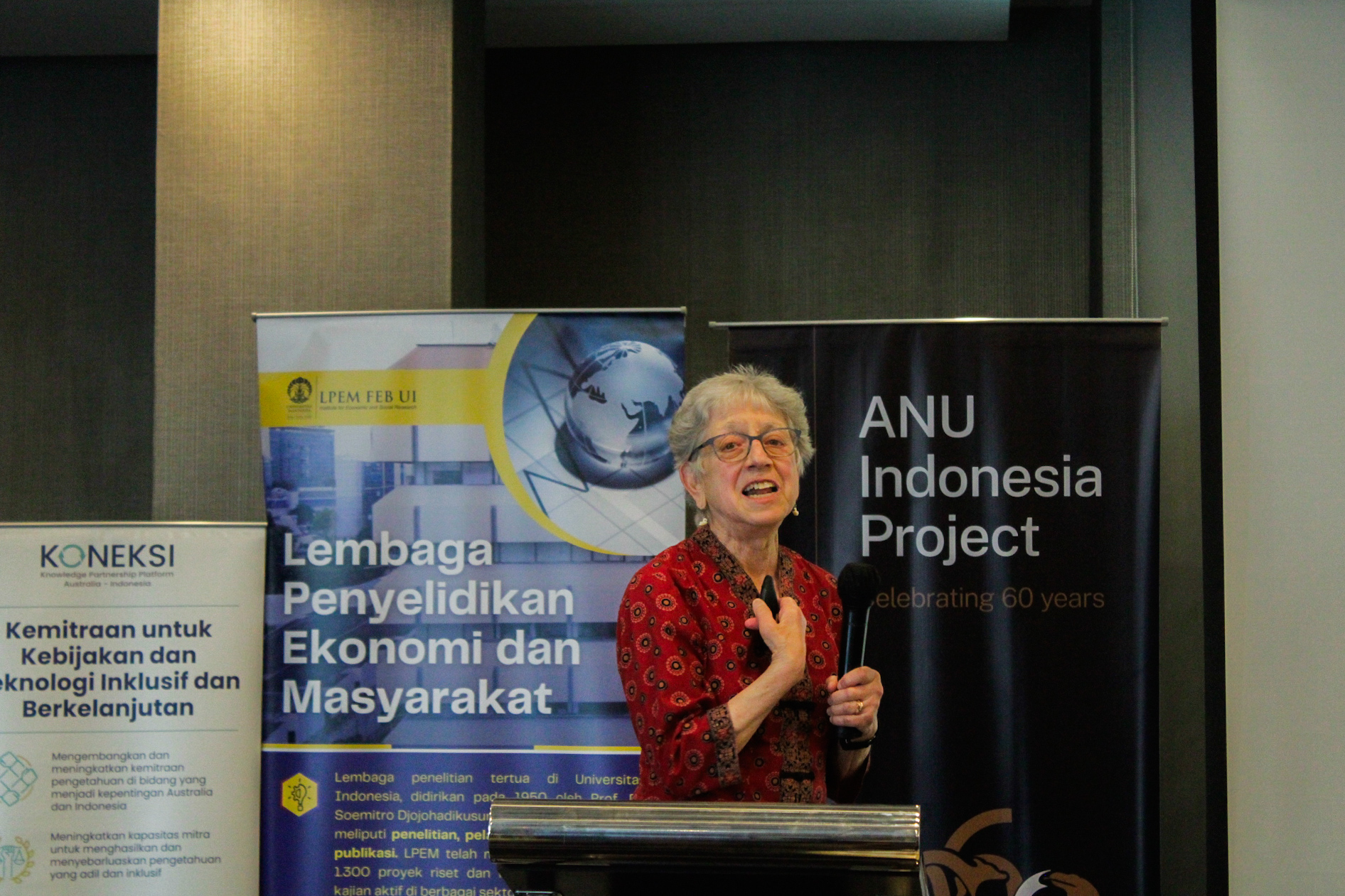
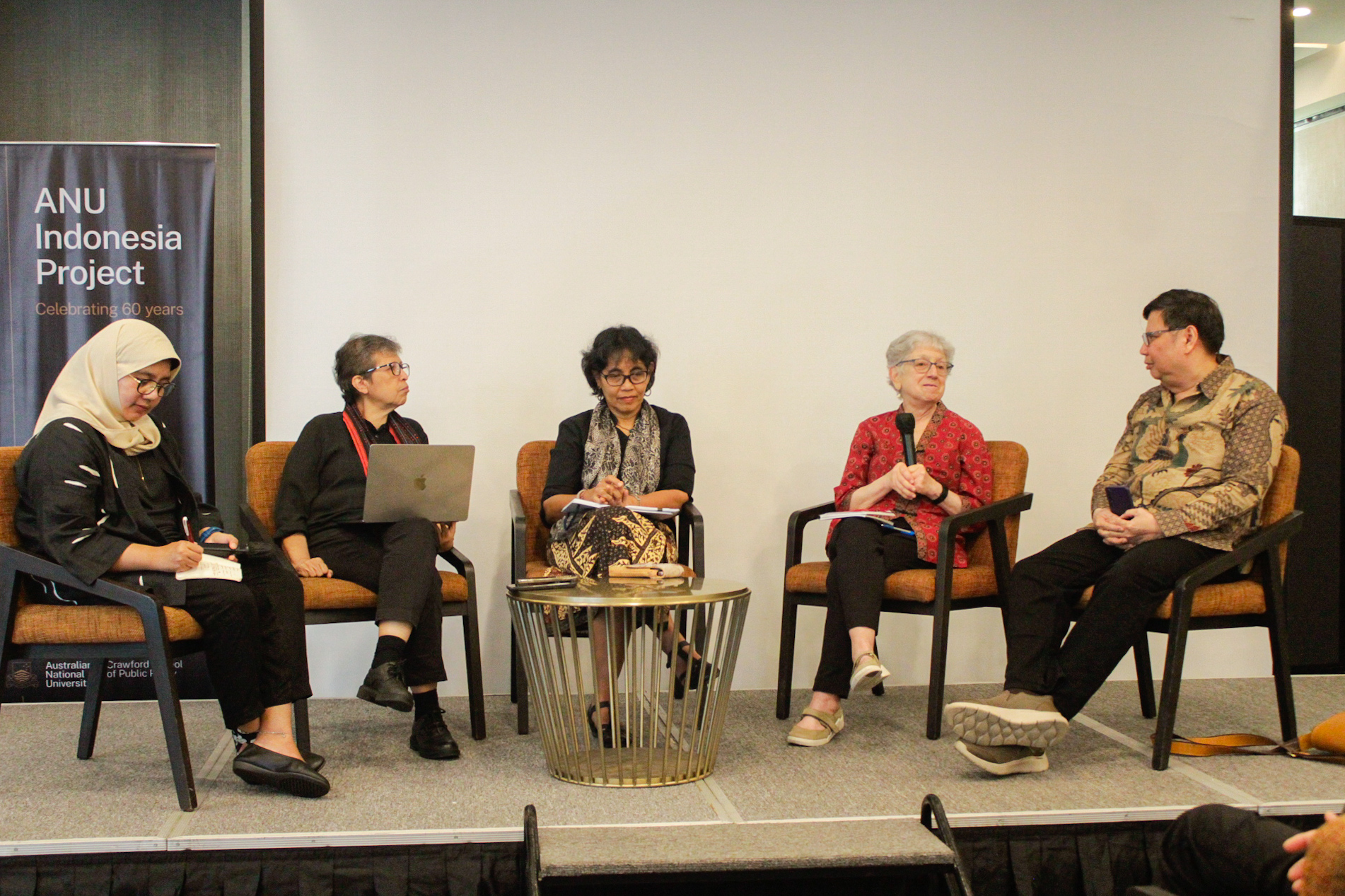
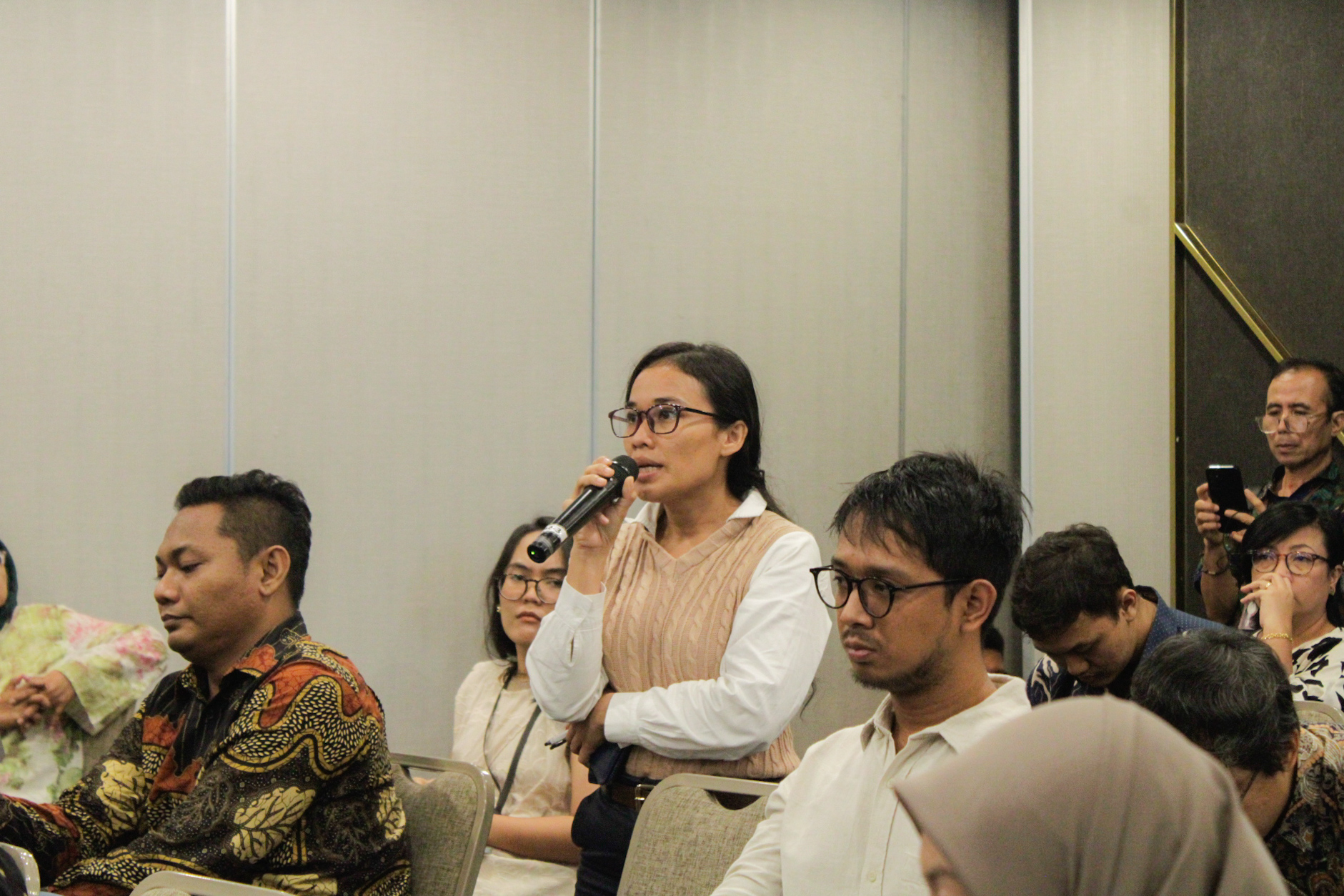
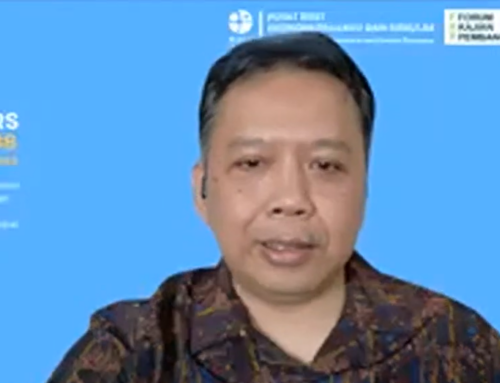
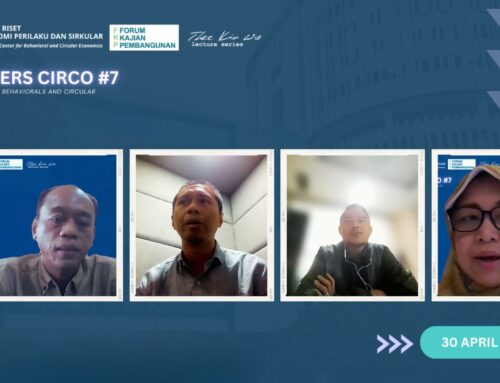



Leave A Comment